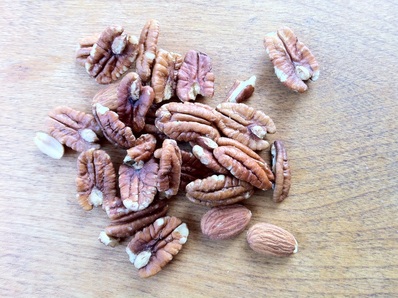 Nuts are nutrient-dense foods that are packed with protein, fiber, essential fats and many other nutrients. There have been a number of research studies that show various health benefits from consuming nuts, from decreased risk of heart disease and diabetes to lower blood pressure and fewer gallstones. But can eating nuts actually help you live longer? An article in the New England Journal of Medicine looked at the association between eating nuts and mortality rates. The authors examined data from two large population studies: The Nurses' Health Study (NHS), which has followed 121,700 women since 1976, and the Health Professionals Follow-Up Study (HPFS), which has followed 51,529 men enrolled since 1986. Participants without complete data or who had a history of cancer, heart disease, or stroke were excluded, so the final analyses included 76,464 women and 42,498 men. Dietary intake was assessed using validated food-frequency questionnaires every 2-4 years. What did they find? In a nutshell, consumption of nuts was inversely associated with mortality. The analysis found that those who reported eating nuts daily were 20% less likely to have died during the course of the study, compared to those who did not consume nuts. As this is an observational trial, it cannot state a direct cause-and-effect, but rather an association between eating nuts and lower mortality rates. However, given the low risk of consuming more nuts compared to the potential benefit (i.e. 20% decrease in mortality), adding a handful of mixed nuts to your daily routine may pay off in the long run. For the most health benefits, skip the peanuts as they can increase inflammation and trigger allergies, and instead opt for a variety of nuts such as walnuts, almonds, pecans, cashews, and brazil nuts. To further increase your nutrient load, add in some seeds such as pumpkin, flax and sesame. Tips to get your daily serving of nuts:
Cheers to living long and healthy! Sources: Bao, Ying, et al. "Association of nut consumption with total and cause-specific mortality." New England Journal of Medicine 369.21 (2013): 2001-2011.
0 Comments
Leave a Reply. |
AuthorDr. Tomah Phillips, ND Archives
April 2020
Categories
All
|


 RSS Feed
RSS Feed